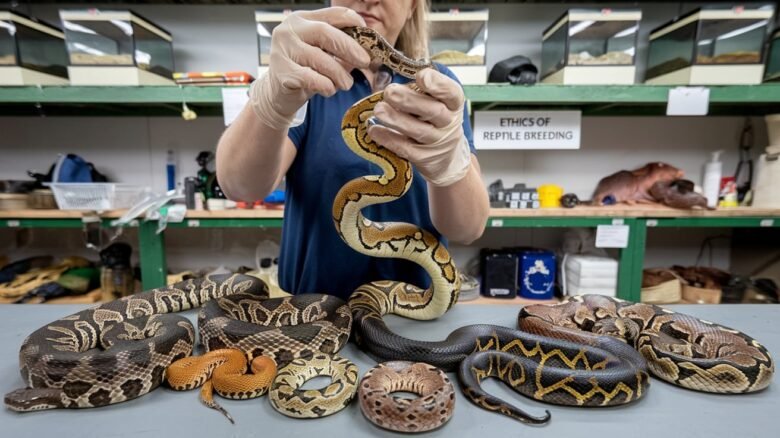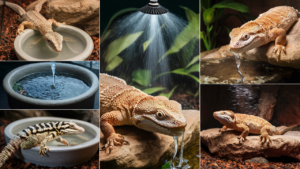In the realm of reptile care, the ethics of breeding are crucial for maintaining healthy populations and ensuring animal welfare. This article explores the principles of responsible breeding practices, highlights the risks of overbreeding, and delves into the ethical considerations involved in reptile reproduction.
Understanding Reptile Breeding Ethics
Understanding reptile breeding ethics encompasses various principles that ensure the welfare of reptiles, emphasize genetic diversity, and uphold breeder responsibilities. Ethical breeding entails breeding practices that promote the health and well-being of the animals while rejecting methods that could lead to suffering or health problems.
A critical aspect of reptile breeding ethics is maintaining genetic diversity. Inbreeding often results in genetic abnormalities and predisposition to diseases, negatively affecting the overall health of the reptiles. Breeders should actively avoid practices that limit genetic variation, thereby enhancing the resilience of their breeding stock.
Beyond genetic considerations, the welfare of the animals involved is paramount. Responsible breeders assess the health of their reptiles before breeding, ensuring that only healthy individuals are chosen. This vigilance not only protects the animals being bred but also contributes to the long-term health of the species.
Breeders bear the responsibility to educate themselves on ethical standards and practices. Failure to adhere to these guidelines can lead to overbreeding and subsequent population declines, exacerbating the challenges reptiles face in the wild. Establishing ethical standards in breeding programs is essential to safeguarding reptiles and contributing positively to their conservation.
Unethical practices in reptile breeding can lead to a myriad of health issues, including congenital disorders and behavioral problems, diminishing the quality of life for these creatures. The responsibility lies with breeders to implement strategies that promote the health, longevity, and appropriate social behaviors of their reptiles, establishing a foundation for sustainable population management.
In summary, understanding reptile breeding ethics requires a comprehensive examination of genetic diversity, animal welfare, and breeder accountability. By upholding these principles and actively engaging in ethical breeding practices, breeders can play a critical role in maintaining healthy reptile populations for the future.
Implementing Responsible Breeding Practices
Implementing responsible reptile breeding practices requires careful selection of breeding pairs, prioritizing health, genetic diversity, and temperament to ensure the well-being of the offspring. Proper housing, nutrition, and care are crucial during breeding. Providing optimal environments helps reduce stress and promotes healthy reproduction. Focus on balanced diets rich in nutrients tailored to specific species needs. Create spacious, clean enclosures that facilitate natural behaviors while minimizing stress to enhance breeding success. By being vigilant about animal health and recognizing signs of distress, breeders can prevent common problems like infertility and behavioral issues. Regular veterinary check-ups are integral to maintain reproductive health and welfare, creating a responsible and ethical breeding program.
Avoiding the Pitfalls of Overbreeding
Overbreeding in reptiles can lead to severe health complications, decreased genetic diversity, and extreme stress for both animals and breeders. Recognizing symptoms like poor growth, abnormal behaviors, and reproductive failures is vital. To prevent overbreeding, breeders should limit mating opportunities based on thorough health assessments and prioritize genetic diversity, ensuring sustainable practices that respect the animals’ welfare. Breeding should only occur when ethically justified, considering the broader implications for the ecosystem and the necessity of preserving species without compromising individual well-being.
Ethical Considerations in Reptile Reproduction
Delving into the ethics of reptile reproduction reveals significant concerns, such as captivity’s influence on inherent behaviors and the repercussions of selective breeding. Breeders must critically assess these factors to ensure their practices prioritize animal welfare and ecological balance. Conservation breeding programs, while potentially beneficial, pose ethical dilemmas regarding prioritizing certain traits over genetic diversity. Breeders are urged to align their methods with ethical standards, actively contributing to the preservation of biodiversity. Emphasizing education, transparency, and collaboration within the reptile community fosters responsible practices that respect both animals and their habitats.
Conclusions
In conclusion, understanding and implementing ethical practices in reptile breeding is essential for promoting animal welfare and responsible stewardship. By adhering to ethical considerations, breeders can ensure healthy populations, avoid the dangers of overbreeding, and contribute positively to the reptile community and conservation efforts.



